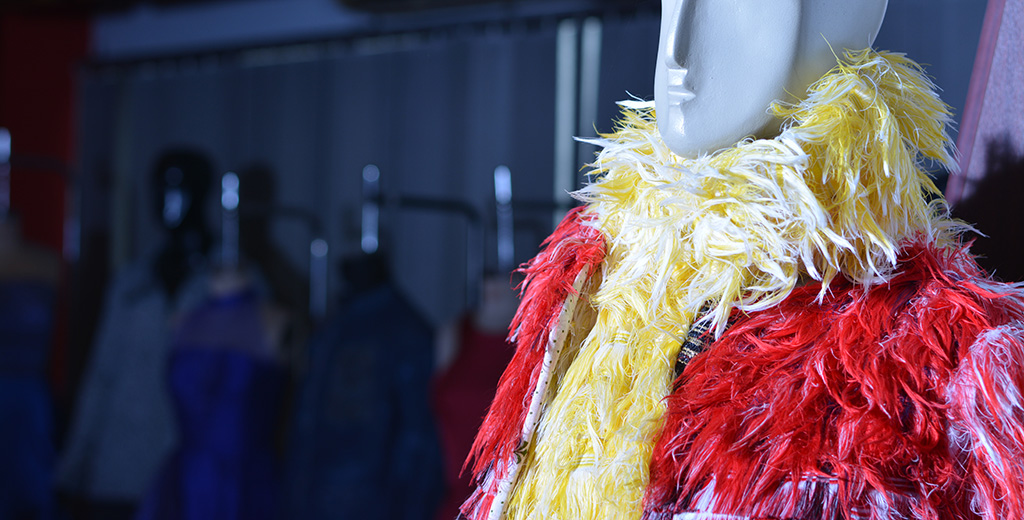Program of Study
Fashion industry is one of the most important sectors of Bangladesh. Bangladesh is known as the second largest exporter of garments in the world, with the accounting for 80 percent of Bangladesh’s total export earnings. B.Sc. in Fashion Design and Technology program at BUFT recognizes that a commercial framework is essential. That’s why students are encouraged to become industry leaders by focusing on innovation, experimentation, individual expression and the future of fashion through technology. Through these program students also builds close industry ties. It helps students to take advantage of the wide range of opportunities the industry can offer. The B.Sc. in Fashion design and technology degree provides students with the technical as well as conceptual knowledge and garment-making skills required transforming creative vision into compelling fashion statements. Also, they can gain hands-on experience with 250 hours of internship and career-focused workshops included in the program. We focus on encouraging students to improve creativity based on their expertise and connecting them with the global fashion industry.
The B.Sc. in Fashion Design and Technology curriculum offers students the creative, technical and professional skills needed to succeed as a fashion designer in the competitive ready-to-wear fashion market. The program develops the core skills of research, design, pattern, and realization of menswear, women swear, and children wear. The skill sets enhance opportunities for the student to set their career in the industry. The curriculum is also flexible and provides scope for professional networking. B.Sc. in Fashion Design and Technology focuses on active learning through project-based enquiry. Through this, they can work in various Interdisciplinary and Collaborative projects as well. The program may involve cross-pathway teams and work with external professionals, sponsoring companies and organizations.
The program consists of eight academic semesters and a total of 145 credits. Each semester contains modules from Majors, Deepening Specializations, Interdisciplinary Minors and General Electives. Academic Majors are the academic disciplines or program-related courses which the undergraduate students formally complete. Students are allowed to deepen their understanding of their core majors through a Deepening Specialization, which gives them a further edge in specific industries. Interdisciplinary Minors provide individuated pathways that would permit students to acquire multidisciplinary skill sets and opt for a group of subjects that complement studies in one’s major or explore an unrelated area of intellectual interest. General Electives are offered to the students to help them enhance their personality and develop interests in specific areas like values, personality development and character building, soft skills, communication skills, critical thinking skills, professional ethics etc.
The program creates a learning environment in which innovation is nurtured across four distinct but closely related pathways. Through this structure, we encourage versatile fashion specialists who can solve problems creatively. We aim to equip you with in-depth knowledge of your chosen field as well as a wider breadth of the industry. Alongside your specialism, you will learn about the social, economic and cultural factors which impact the professional realm in which you will work.
Subjects Taught
Category wise courses and credits summary
| # |
Category |
No. of Courses |
Credits |
Percentage |
| 1 |
General Electives |
14 |
31.00 |
21.37 |
| 2 |
Majors |
25 |
64.00 |
44.13 |
| 3 |
Deepening Specializations |
07 |
20.00 |
13.79 |
| 4 |
Interdisciplinary Minors |
10 |
30.00 |
20.68 |
| Total |
56 |
145.00 |
100.00 |
Increased industry interaction for students through classroom lectures, tutorials, projects, field trips/factory visits, in-plant training/internships and part transaction in the industry environment is the focus of the structured OBE curriculum. The contact hours are regulated to around 24 hours per week, giving increased time for tutorials, practical sessions, studio practices, group works, and self-study.
The degree program is completed with an 8-week in-plant training/internship, which the students do in an industry or a company, followed by the production of a Bachelor’s Thesis/Final Year Project.


